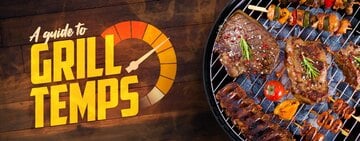Pros and Cons of Using an Indoor Meat Smoker
Barbecued and smoked meat is used in a variety of cuisines all around the world. From Peking duck in China to Memphis-style barbecue in the United States, smoked meats come in many forms. Typically, it takes a lot of time and space to give the meat that universally loved sweet and tangy smoked flavor, and many restaurants and foodservice establishments do not have the outdoor space for a dedicated smoker or smokehouse. Fortunately, there are indoor meat smokers, which are specifically designed for these restaurants. Keep reading to learn more about what an indoor smoker is, how they work, and the pros and cons of choosing an indoor smoker.
Shop All Indoor SmokersWhat Is an Indoor Meat Smoker?
An indoor meat smoker is an appliance that is used in a variety of foodservice settings for cooking and smoking meat. You can smoke and barbecue many different types of meats in an indoor meat smoker, like beef, pork, and poultry. Indoor meat smokers are typically smaller than the outdoor variety, so you can use them inside without taking up too much floor space.
How Does an Indoor Meat Smoker Work?

These appliances work by heating up wet wood chips until they start to smoke. That smoke then surrounds and penetrates the meat that is either sitting on racks or hanging from hooks on the top of the smoker. This process gives the meat the signature smoky and sweet flavor. Then, heat is applied to cook the smoked meat to tender and juicy perfection.
Pros and Cons of Using an Indoor Smoker
Before deciding if an indoor smoker is the right choice for your business, you should first consider the pros and cons of using one.
Pros of Using an Indoor Meat Smoker
Indoor meat smokers are useful pieces of equipment that can be used in a variety of foodservice settings. Here are some other benefits of using an indoor smoker in your business:
- You can use them all year round. One of the major flaws in outdoor smoking is that outdoor smokers cannot operate when the weather is bad. Because indoor smokers are inside, you can use them throughout the year in any climate without any issues.
- Indoor smokers are ideal for operations without outdoor space. Indoor meat smokers fit inside your kitchen space, which makes them an excellent choice for urban restaurants or operations that don't have access to outdoor space for smoking.
- Indoor smokers use less wood and utilities. Because these types of smokers are smaller, they require less wood to smoke your meat and less gas, electricity, or propane to heat your food than outdoor smokers. As a result, using an indoor meat smoker can help reduce your utility bills.
- You have more control over how your meat cooks. Many indoor meat smokers are high-tech machines, and they provide precise control over the heat, moisture, and smoke levels inside the cooking chamber, so you can ensure that your smoked meat and barbecue turns out perfectly smoky and tender.
Cons of Using an Indoor Meat Smoker
While indoor smokers are ideal for a variety of operations, they may not be the perfect choice for every restaurant. Here are some disadvantages of choosing one for your business:
- They're not ideal for very small kitchens. Although indoor meat smokers take up less space than outdoor options, they still take up a decent amount of space, so they may not fit in very small establishments.
- They're more expensive than outdoor varieties. Even though they are more expensive than outdoor meat smokers, indoor smokers are typically higher tech and have added functionality. Plus, the utility bill savings can make up the difference in price over time.
If your business is located in a city, doesn't have much outdoor space, or is just looking for a high-tech piece of equipment that can perfectly smoke a rack of ribs or pork shoulder, indoor meat smokers are an excellent choice. Indoor meat smokers give your barbecued meats a sweet and smoky flavor just like the outdoor options, but they are useful year round and in a variety of settings because they can be used indoors.








